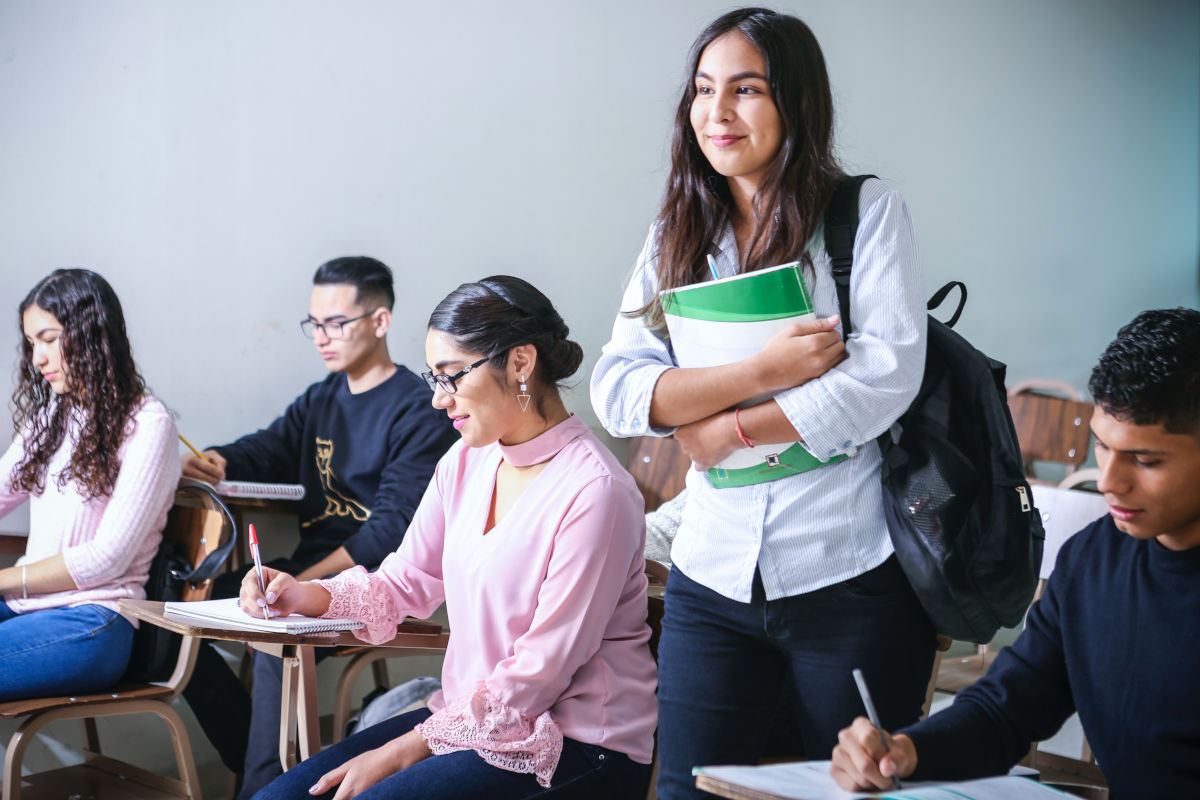Foundation-Funded Programs
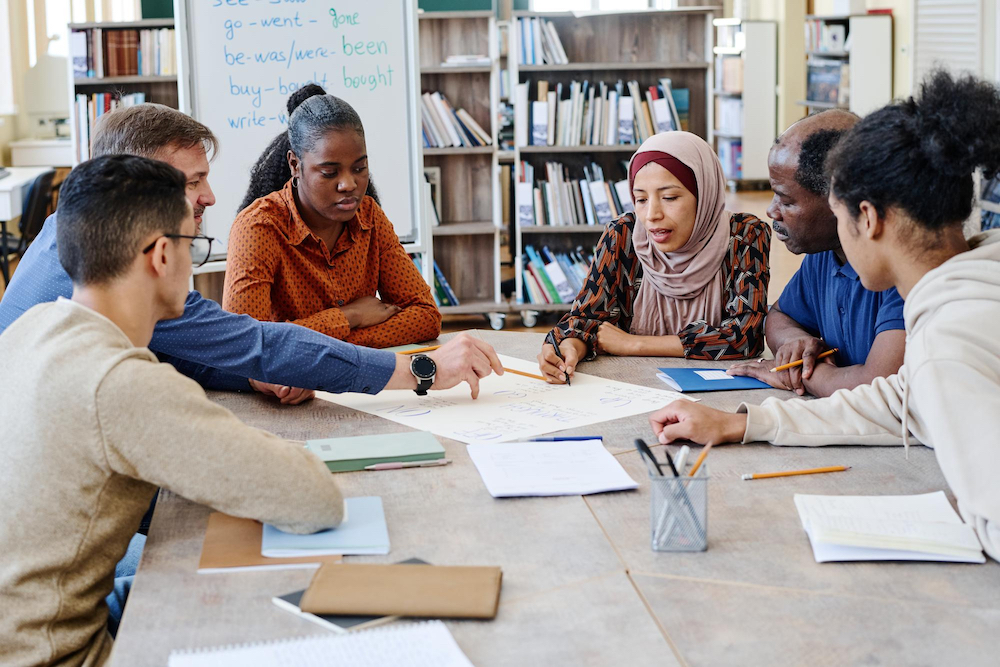
ESL Summer Bridge
Introduced in 2021, the Summer Bridge Program is designed to help late arrival immigrant youth transition more quickly into credit level college courses. The 2023 program served 52 multilingual freshmen in the summer before they began their full-time studies at CT State Norwalk.
The program includes daily reading and writing instruction, individual academic counseling, introduction to college services, and assistance in navigating the financial aid process. Students who complete the Summer Bridge Program are significantly more likely to declare a major and move into mainstream coursework.
While math is not a specific focus of the program, improvements in English language skills helped many Summer Bridge students to also improve their math placements. These successes mean students save time and money on their path to earning a credential.
UPLIFT
UPLIFT is a student support program that empowers men of color by aligning services with students’ needs through each stage of the college journey, clarifying college expectations for participants and ensuring they successfully matriculate and succeed in their courses and ultimately graduate from CT State Norwalk. Supports are bundled, integrating academic and non-academic services through UPLIFT-dedicated advisors, coaches, tutoring, mentoring, and weekly gatherings.
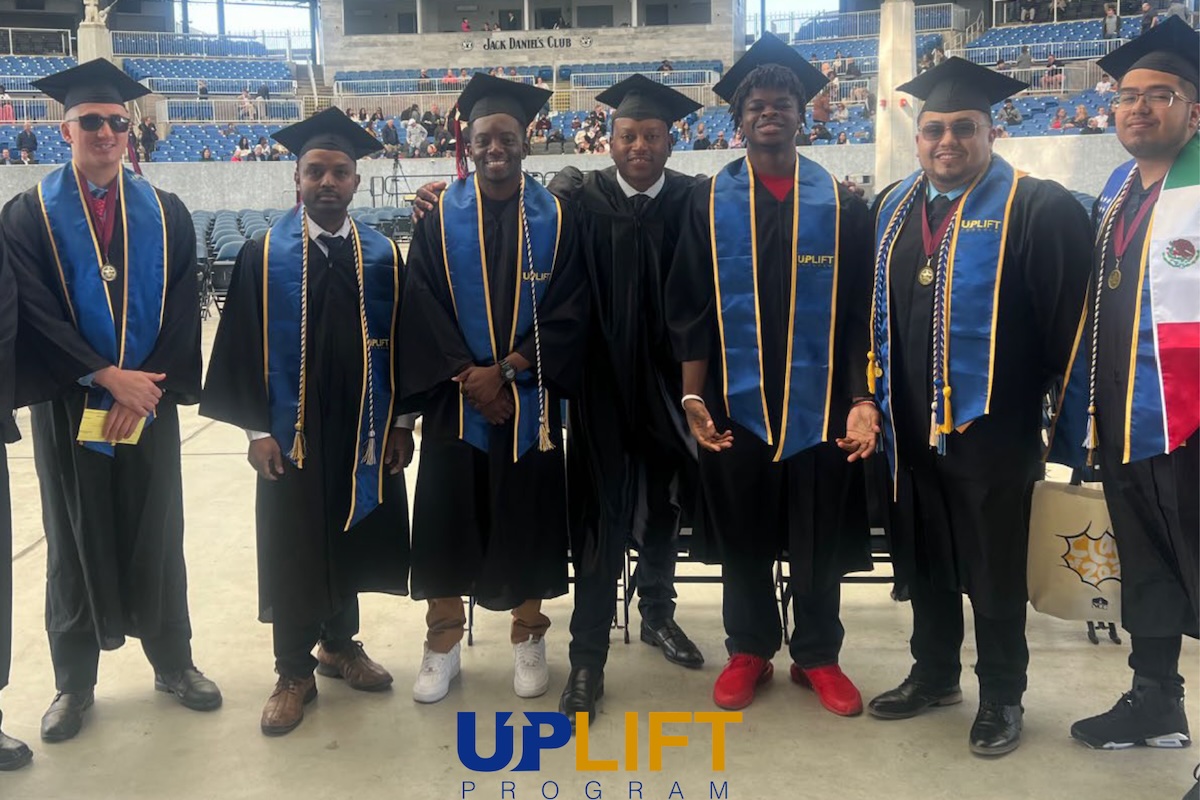
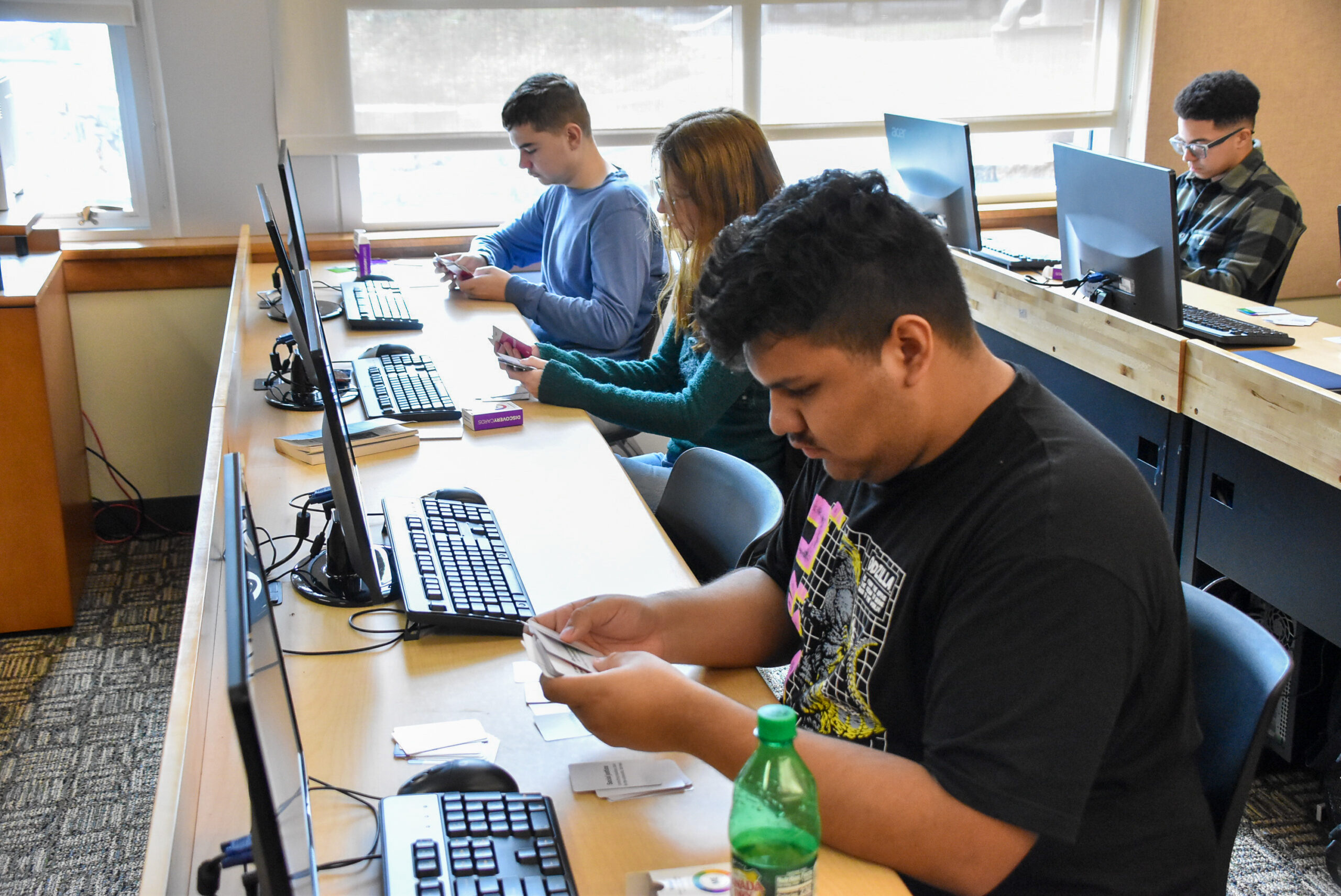
STEM Lab
In collaboration with the Science, Technology, Engineering, and Math (STEM) faculty and Tutoring Center and with support from the NCC Foundation, CT State Norwalk is excited for the forthcoming opening of a new STEM Lab. This innovative space will enhance the academic experience by providing a STEM-focused environment where students can thrive.
The STEM Lab will serve as a vital hub for students to access a range of academic support and materials tailored specifically to support them throughout their journey at CT State Norwalk. Equipped with laptops and computers featuring relevant STEM software, the lab will provide essential tools to support student learning.
It will feature areas for individual and collaborative work, allowing students to engage in hands-on projects and peer-to-peer collaboration. In addition to student workspaces, the STEM Lab will also include space for faculty to host office hours and tutors to offer professional support and feedback.
This space highlights our commitment to creating an enriched learning environment for students and our focus on investing in preparing students to enter careers in high growth and emerging business sectors.
Child Development Lab School (CDLS)
CT State Norwalk and the NCC Foundation held a ribbon cutting ceremony on September 6, 2024 to celebrate the opening of an additional infant/toddler classroom at the Child Development Lab School (CDLS). The expansion, which
doubles the number of infants and toddlers that can be served by the CDLS, was supported by a generous grant from The Harlan E. and Lois J. Anderson Family Foundation.
With more spaces available, more CT State Norwalk students, faculty, and staff are benefitting from having their children in high-quality childcare services on the campus. This allows students to focus on their studies and faculty and staff on teaching and supporting students.
In addition to providing much-needed childcare spaces, the expanded facility also serves as a classroom and laboratory for students interested in pursuing a career as an early childhood educator.
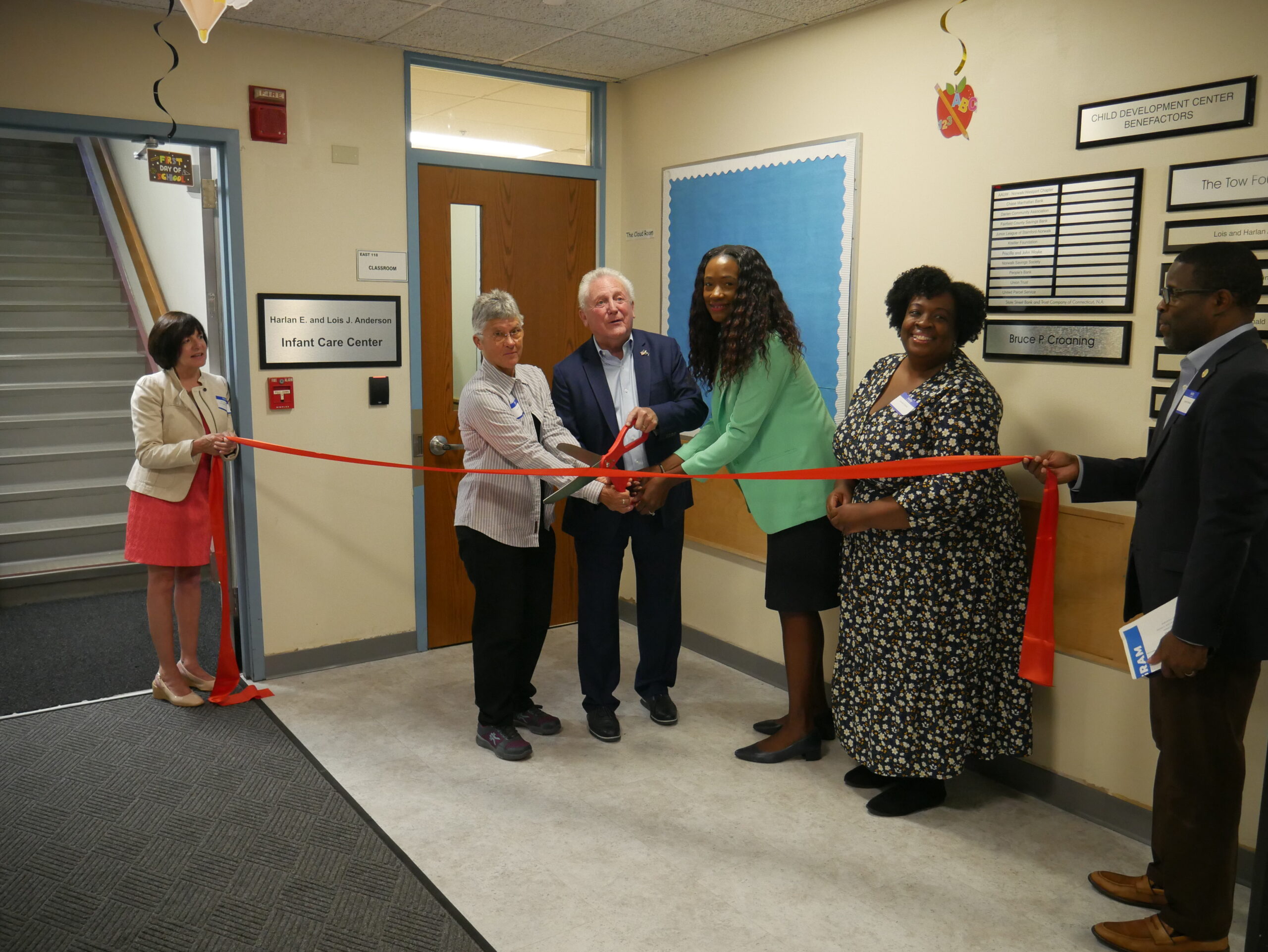
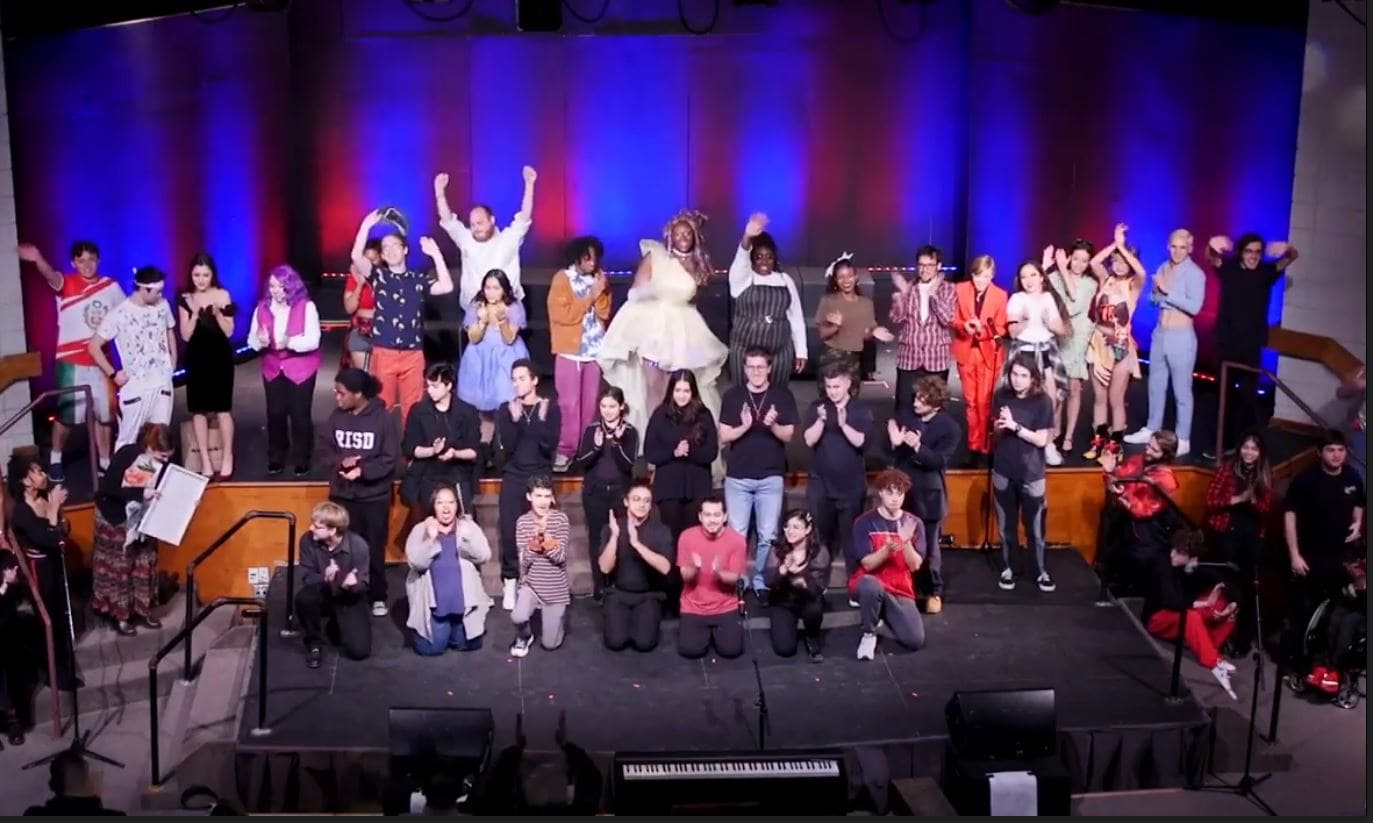
Campus Events
Academically enriching and entertaining special events foster a sense of community at CT State Norwalk. Foundation sponsored events include a common read program, festivals, speakers and music on campus.
Student Emergency Fund
The CT State Norwalk Emergency Fund was established in 2020 by the NCC Foundation to help students with urgent, one-time financial shortfalls when the pandemic created hurdles for some already struggling students who were working to advance their education. Since then, the NCC Foundation enabled the College to provide over $216,000 in emergency funding to qualified students dealing with issues ranging from food and housing insecurity to technology costs, utilities, and transportation.
